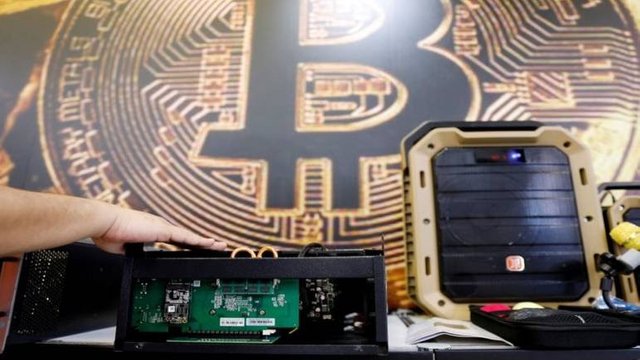Cryptocurrency startups absorb blow of RBI ban, pivot to P2P trading
The Supreme Court's verdict, upholding the Reserve Bank of India's ban on banks dealing with cryptocurrencies has rattled the industry and slowed down business. But players in the sector are refusing to let the industry die, with most of them now moving to a P2P model to soften the blow.
The verdict follows a public interest litigation asking the court to review RBI's circular dated April 6, allowing banks three months to exit operations dealing with virtual currencies.
"Removing the ‘bank account to digital exchange’ channel clearly will not help the industry and recently reduced trading levels demonstrate this. However, the market is adjusting quickly to this limitation and has already evolved to boost the 'crypto to crypto'. Bank accounts are not required in either of these models in order to continue trading activity," said Akash Aggarwal, Founder and CEO of Alluma.
Till last year, India was an attractive market for cryptocurrencies. Several players entered India because it was a lucrative market given the huge demand. But the government's stand in the Budget, and RBI's circular, have been big blows to the industry, according to Vajahaath Hussain, CEO of the only Cryptocurrency investment bank – Almora.
Prices of cryptocurrencies fell by almost 50 percent in a single day after RBI released the circular. The demand and activity in cryptocurrencies has remained subdued ever since.
India's stand against cryptocurrencies is in stark contrast to other countries such as Abu Dhabi and South Korea, which have opted regulate the sector rather than go for a blanket ban. Several companies Moneycontrol spoke to believe that the government did little or no research before arriving at its conclusion.
In response to an RTI query in June, RBI had said that it has not set up any committee to understand the usage of virtual currencies. It also replied 'No' to a question asking if the government did any research before reaching the stand.
The finance ministry is yet to make a final ruling on a formal ban, but the recent volatility in cryptocurrency markets has already sent the industry spiralling down.
"Furthermore, the verdict is going to be a dampener for the government itself, since banking helps streamline the whole flow of money in and out of crypto. This also helps the government and its various departments, including GST, income tax, etc. Due to the ban by RBI, these revenue streams of the government are going to be lost," said Nischal Shetty, Founder and CEO of WazirX.
Considering RBI and the government's security concerns regarding virtual currencies, companies in India had created closed systems to encourage proper monitoring of transactions.
"Blockchain nodes can be chosen, so the government can actually monitor it. We can also filter these assets in terms of credibility. We, for example, don’t allow trading of certain assets. We can work with the government in determining such caveats," said Rahul Raj, Co-founder and CEO of Koinex.
Zebpay, another startup dealing in virtual currencies, has put in checks and balances by adopting KYC verification of all its users. Unocoin's transactions also levy service tax, which means every transaction is reported to the government, making discovery and detection easier.
WazirX is one of the many companies that have turned to Peer-to-Peer transfers, allowing users to seamlessly buy and sell crypto for rupees directly with each other. The seller deposits the crypto with WazirX, which the brand escrows for safekeeping during the transaction. On the other end of the spectrum, the buyer pays the seller in rupees and as soon as the seller confirms receipt of the payment, WazirX releases the crypto to the buyer.
"While the feature allows users to still build their digital assets, we are also hopeful that the authorities will acknowledge the impact crypto is having on global economies and would work closely with the private players like us to better regulate this space, instead of simply banning the same," Shetty of WazirX said.
Hussain of Crypto investment bank Almora warns that P2P trading will also lead to illegal trades, which can be done through cash, since the banks are no longer allowed to deal with cryptocurrencies. The primary concern the government has had with cryptocurrency is the lack of transparency, which makes detection of illegal transactions difficult.
"Presently all the major industry players are offering the crypto to fiat and fiat to